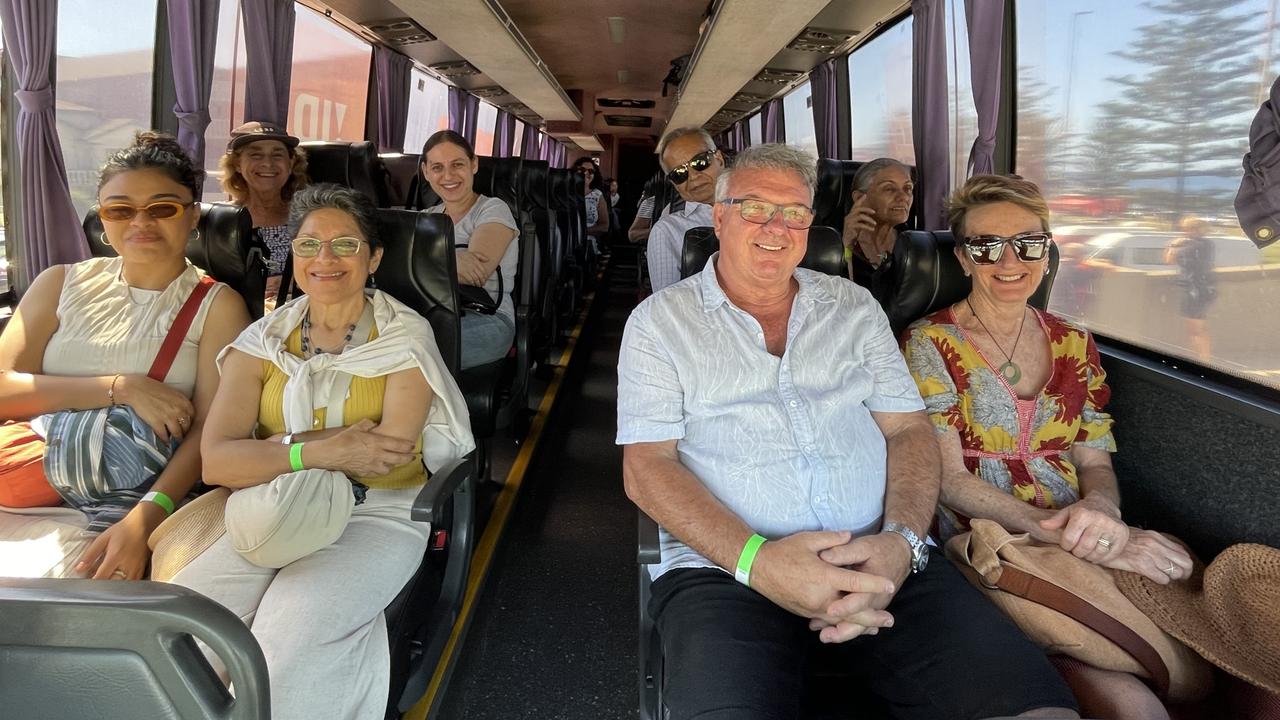How undercover cops chased Sydney drug importers from NZ, to Thailand and finally Serbia
In hotel lobbies and in public bars, they met – undercover cops on one side, and major drug syndicate members on the other. This is the untold story …
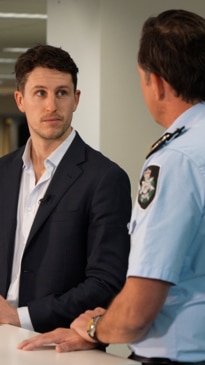
NSW
Don't miss out on the headlines from NSW. Followed categories will be added to My News.
In hotel lobbies and in public bars, they met and failed to come to an agreement.
On one side of the negotiations were undercover officers from the Australian Federal Police, pretending to be part of a criminal syndicate who had stumbled on a large shipment of drugs, while on the other was the actual criminal syndicate whose importation had gone wrong.
Operation Amorgos started in Sydney when 1.28 tonnes of cocaine – worth $500 million – was discovered hidden in fabricated steel at the border in 2017.
What followed was a 10-month game of cat and mouse, that saw undercover officers pursue the gang around the world in the Czech Republic, New Zealand, Sydney, Perth and Thailand, before Tristan Waters, Rohan Arnold and David Campbell were arrested in a Serbian hotel lobby, extradited to Australia and earlier this year sentenced to a combined 65 years in jail.
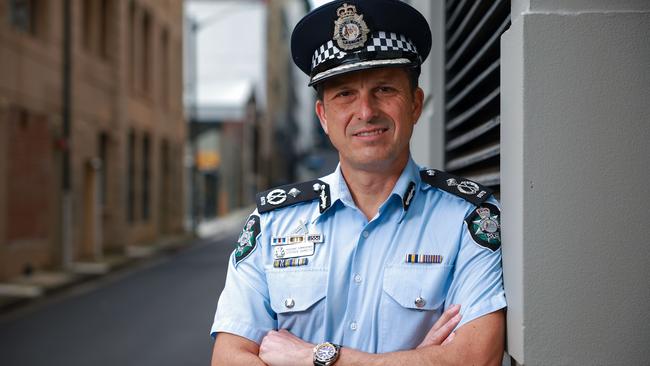
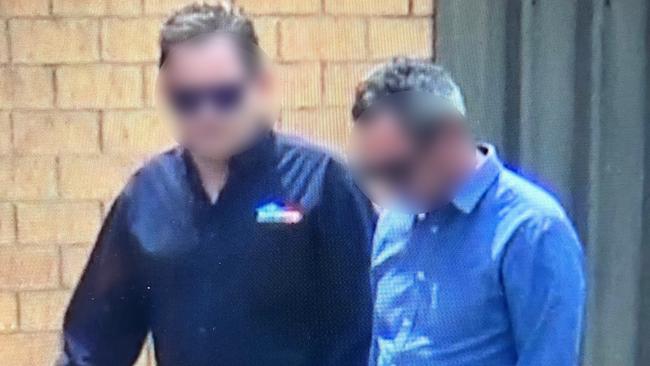
It was not until after armed police stormed the Serbian hotel they discovered Waters, a Canberra-born kingpin of the drug syndicate, was considering killing the undercover officers.
AFP Assistant Commissioner Steve Dametto headed up the investigation and has for the first time told The Daily Telegraph of the incredible lengths his officers went to in an effort to lure Waters out of hiding.
“At the time, that would have been I think it was the second biggest seizure we’ve ever had in cocaine,” Asst Comm Dametto said.
“Because it was such a big (shipment), we knew that this wasn’t just someone trying for the first time to bring this amount of drugs and so that’s why we came up with a strategy.
“When we looked at this, we thought OK, this was a really complex … how do we get to know who’s in this international scene and dismantle them.”
The audacious plan involved the AFP undercover officers claiming to be in possession of the cocaine and offering to hand over the drugs, in exchange for a $3 million cash.
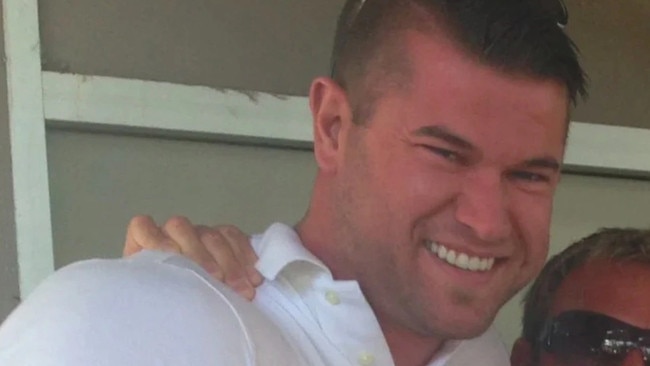
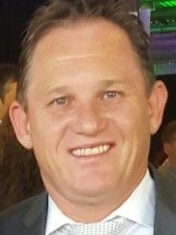
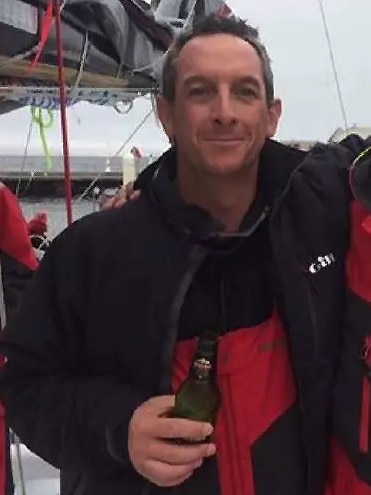
The first member of the syndicate they knew of was Campbell, because initial importation was addressed to a business owned by him.
Surveillance work on Campbell led the investigators observe several meetings in the ACT with Arnold, the second piece of the puzzle.
The AFP was then watching on as Arnold travelled to the Czech Republic to meet with Waters, while Campbell flew over to New Zealand.
“In April when Campbell was advised that the container went missing, he started calling people … and there’s numerous meetings with him and Arnold. So therefore we started to find who Arnold is,” Asst Comm Dametto said.
“Arnold in September travelled to the Czech Republic, which we got covered (surveilled), and he then meets who at the time was an unknown person.
“We alleged (in court) that was Waters that went to meet him in the Czech Republic … so you’re starting to build a bigger picture.”
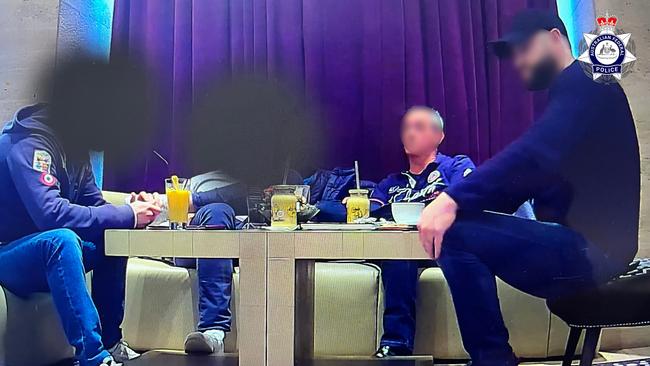
The AFP refused the drug syndicate’s request for a face-to-face meeting in South America, believing it was too dangerous, and so instead organised a Thailand rendezvous.
A Hispanic man and Thai woman arrived, with an immediate “distrust” between the two groups.
They then moved the meetings back to Australia with a face-to-face in Perth, and a simultaneous exchange of drugs and cash in Sydney.
The undercover officers deliberately hindered that meeting, resulting in an agreement for a new catch-up in Serbia – a place the criminal gang felt safe, believing the police there could not possibly be working with Australian authorities.
“We knew Arnold and Campbell were big players, but we knew there were people above them as well and so that’s why we were happy to go one more step,” Asst Comm Dametto said.
Video shows the moment Serbian police burst into the hotel lobby and detained Arnold and Waters inside, and Campbell waiting in a car outside.
At that time the Operation Amorgos team were listening on from half-a-world away, inside the AFP headquarters.
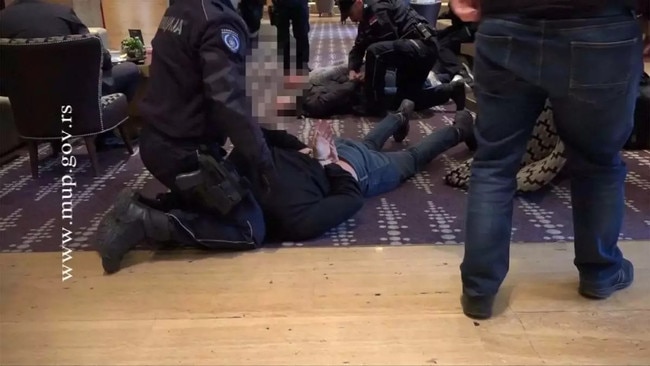
“Serbia made them feel comfortable and I think they would have got the shock of their lives,” Asst Comm Dametto said.
AFP Detective Senior Constable Rachael Murphy, who was the officer in charge of the case, said the tactics they used and risks they took on Operation Amorgos were “unique”.
“To be honest, for the year of the investigation and then at times during the preceding six years of prosecution, we put our lives on hold to prioritise the arrest and prosecution of the offenders,” Det Snr Const. Murphy said.
“The strategy was bold and innovative and we were given freedom and flexibility that I hadn’t experienced before.”
In the NSW District Court earlier this year, Waters was sentenced to 20 years jail for his role in the syndicate, Arnold to 27 years jail and Campbell to 18 years.
Do you have a story for The Daily Telegraph? Message 0481 056 618 or email tips@dailytelegraph.com.au



